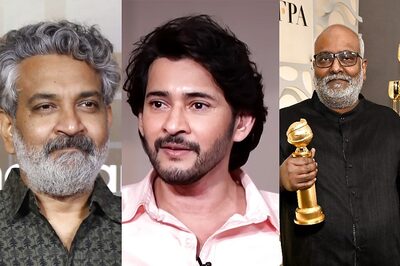
views
New Delhi: The assassination of Benazir Bhutto on Thursday is likely to plunge Pakistan into a spiral of violence, with the government possibly postponing elections and taking further repressive steps in the name of fighting terrorism, said analysts.
"Pakistan will plunge into civil war," said strategic analyst K Subrahmanyam. Blaming the Musharraf government for the terrible mess in Pakistan, he pointed out that the assassination capped the Pakistani military's long appeasement of Islamist forces to use them in their proxy war against India.
"They have comprised with the jehadis. The jehadis have now turned against Pakistan," he said.
According to Ajai Sahni, an expert on terrorism, the attack has made Musharraf's regime more vulnerable. But, at the same time, he felt that the assassination "will not change the political situation" as the Pakistani government was already aware that it would not have the full-fledged support from Benazir Bhutto when it had announced the general elections for January 8.
While Bhutto had reportedly come to Pakistan after a "deal" with Musharraf, she had made clear that she would not be a "second Shaukat Aziz".
Experts feel that Musharraf's need for the democratic foil that Bhutto had given was already waning, as he had consolidated his power, despite his unpopularity.
Despite removing his uniform, the army, under a new chief Ashfaq Pervez Kiani, remained visibly loyal to Musharraf, which again removed any hope of Pakistan moving towards a civilian democracy.
Though he did not go as far as to term the consequent scenario as a "civil war", Sahni felt there would be "more and more violence".
"The extremists will continue to perpetrate more attacks and the military will respond with total repression," said Sahni.
While Bhutto has already been lauded as the last hope for Pakistani democracy, experts pointed out that she hardly had done much to foster democratic institutions during her two terms as prime minister.
"She spoke the language of democracy very eloquently, but her actions were not equal to that. But, even symbolic support for democracy was a change in Pakistan," said Uma Singh, professor of South Asian studies, Jawaharlal Nehru University.
She had in fact had been near the site of the first blast against Bhutto after she arrived in Karachi on Oct 18 from exile.
The postponement of the general elections on Jan 8, 2008, is now almost a "certainty". "Musharraf will have to hold the elections to garner some kind of democratic credibility to his Western friends," said Institute of Peace and Conflict Studies' Dipankar Banerjee.
The role of another former prime minister, Nawaz Sharif, the sole other viable democratic leader in Pakistan, has now become vital.
"Musharraf is likely to make overtures towards him, but I doubt if Nawaz Sharif will now work together with him," said Sahni. Musharraf had overthrown Nawaz Sharif in a military coup to take over in 1999.


















Comments
0 comment